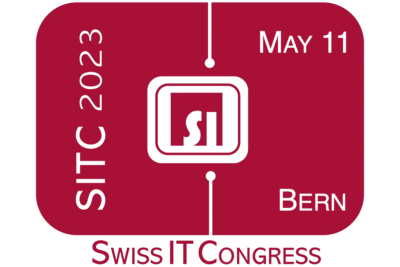
Remember NASA’s $125 million Mars Climate Orbiter mission in 1999? Its goal was to study Mars’ climate – specifically its atmospheric energy balance, carbon cycle, and the distribution of water and dust. All seemed well until the critical moment of orbital insertion. Instead of positioning correctly, the orbiter veered too close to Mars, disintegrating upon atmospheric contact and vanishing forever. $125 million and years of work, literally dissolved in an instant. What should have been a groundbreaking opportunity to understand our universe transformed into a total failure.
The subsequent investigation into what went wrong revealed a disconcerting flaw: one engineering team had used the metric system for trajectory calculations, while a contractor had used imperial units (miles, inches, pounds). A trivial human error, not immediately obvious, led to catastrophic results due to a lack of thorough data verification. The absence of unit conversion meant navigation commands were completely off. Instead of slowing down to enter a stable orbit around Mars, the probe approached too closely and was destroyed in the atmosphere.
This is just an example of how often project failures aren’t due to glaring, obvious mistakes, but rather small, unverified inaccuracies, unchecked assumptions, and marginal discrepancies that can derail even the most ambitious undertakings. Sometimes, all it takes is the lack of proper data management.
Even if you’re not planning to send probes to Mars, you’ve likely encountered real-world scenarios in your Swiss company where uncertain, non-unique, duplicated, or inconsistent data (depending on who accesses it) leads people to wrong conclusions, inefficient processes, and poor decisions every day.
So, we ask you: What’s the state of Data Management in your organization? Do you know the right questions to ask to understand it? And once you grasp your company’s situation, what steps can you take to address critical issues?
This is where a Data Management assessment comes in – a “health check” of how data is managed within your business. It’s not a luxury; it’s a strategic necessity.
Key Areas a Robust Data Management Assessment Should Cover:
- Operational Efficiency: Identify hidden inefficiencies in data management processes, bottlenecks, and optimization opportunities.
- Regulatory Compliance: The increasing complexity of data privacy and protection regulations (such as nLPD, emerging AI regulations…) makes a thorough evaluation of your systems ever more critical.
- Cybersecurity: Cyberattacks are continuously on the rise. A detailed evaluation of your data security infrastructure can identify vulnerabilities and propose advanced protection strategies, safeguarding your most valuable assets.
- Data Architecture & Standardization: Assess whether your company’s architecture allows for efficient data access, and if it’s flexible and scalable enough to adapt to changing needs or evolution.
- Data Quality: Incomplete, duplicated, or inaccurate data can compromise your entire business decision-making process. A professional assessment evaluates your data validation processes and whether data quality is sufficient to ensure reliability for decision-making.
- Scalability & Innovation: Understanding your current data architecture allows you to design scalable solutions that can support future growth and the adoption of emerging technologies like AI and Machine Learning. As Bill Gates famously said, “The first rule of any technology used in a business is that automation applied to an efficient operation will magnify the efficiency. The second is that automation applied to an inefficient operation will magnify the inefficiency.” By optimizing your corporate data management, you build a solid foundation for any initiative you choose to undertake.
- Data Governance & Leadership: A quality assessment helps define clear management policies, assign responsibilities, and control information flows, creating a more transparent and effective data ecosystem. Data Literacy – data fluency – is also an integral part of successful Data Management projects. Achieving business objectives hinges on company culture. Therefore, it’s essential to understand if data is considered a strategic asset in your organization, and if management promotes the correct approach and can drive change towards maximum effectiveness.
Steps for a Thorough Assessment of a Data Integration or Analytical Environment:
- Business Requirements Gathering
- As-Is Analysis of the Data Ecosystem
- Data Quality Evaluation
- Data Governance Analysis
- Technological Infrastructure Assessment
- Data Security Assessment
- As-Is Analytical Capabilities Analysis
- Organizational & Data Literacy Diagnosis
- Gap Analysis Elaboration
- Presentation of a Macro-Solution and a Data Governance Program
Are you ready to make sure that the data foundations of your business are as solid as the Swiss Alps?
Conclusion
The lesson from the Mars Climate Orbiter reminds us that, when it comes to data, there’s no such thing as an error “too small” to matter. A superficial approach to data management can compromise processes, strategic decisions, and even your company’s overall competitiveness. Investing in a thorough assessment of your data ecosystem is not just a precaution — it’s a strategic necessity for building reliable, secure, and scalable foundations. In a world increasingly driven by data, success belongs to those who can transform information into a strategic advantage. So, the real question is: will you leave your trajectory to chance, or take control of your company’s future?
About Var Group Suisse
The mission of Var Group Suisse is supporting swiss Companies in their digital evolution journey. Working in Switzerland since 2013, over the years has increased and consolidated its business, thanks to strategic partnerships with local Entities and Institutions.
Var Group Suisse is the swiss branch of Var Group, leader in the digital services and solutions sector with a turnover of 875,7 million Euros and a highly professional workforce of 4243 as of 30 April 2025. The excellent coverage on the ground in 15 countries (Italy, Albania, Andorra, Austria, Brazil, France, Germany, India, Mexico, Romania, Spain, Switzerland, Thailand, Tunisia and USA) and an in-depth knowledge of corporate processes, allow Var Group to be close to entrepreneurs and C-levels in defining evolved business models. The synergy and specialization of its competence centers enable companies to take full advantage of the benefits of digital and develop projects in the areas of Cybersecurity, Data and AI, Blockchain, Digital infrastructure, Digital Experience, Business Applications, Industry Solution, Collaborative Workspaces and Sustainability Solutions. Var Group adheres to the UN Global Compact and actively promotes its commitment to ESG by developing numerous projects, documented in its first voluntary sustainability report in 2024.
Var Group is part of Gruppo Sesa, leading Italian provider of technological innovation and IT and digital solutions for the business segment, with consolidated earnings of 3,356.8 milion Euros as of 30 April 2025. Sesa S.p.A. is listed on the Euronext STAR market in Milan and pursues a strategy of sustainable development to the benefit of its stakeholders, based on the expertise of its human resources and a strong emphasis on environmental and social responsibility.
Photo: Var Group Suisse.








